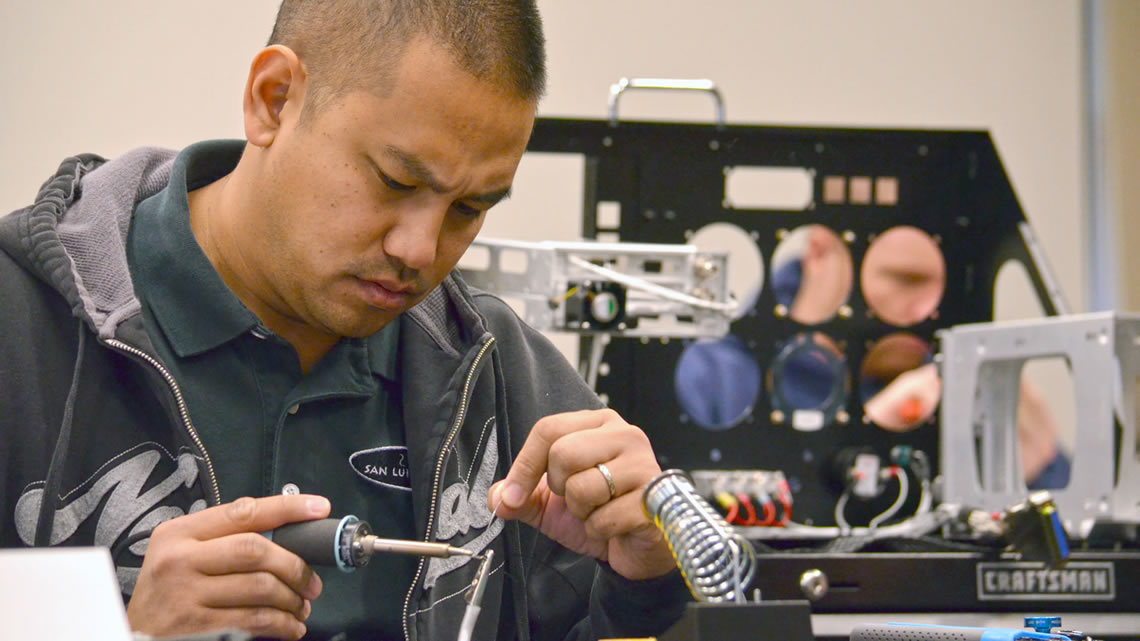On Wednesday, April 26, ASTM International introduced its first standard from the Committee on Aerospace Personnel (F46), which will help certify Aircraft Electronics Technicians, or AETs. Mike Adamson, AEA vice president of member programs and education, is a member of the ASTM committee. More than 12,000 ASTM standards operate globally. Working across borders, disciplines and industries, ASTM International harnesses the expertise of more than 30,000 members to create consensus and improve performance in manufacturing and materials, products and processes, systems and services.
First Standard from New Group Will Help Certify Aircraft Electronics Technicians
W. CONSHOHOCKEN, Pa., April 26, 2017 – A new guide will help assess competencies of avionics professionals who work with airplane technologies and who want to gain certification as Aircraft Electronics Technicians (AETs).
This is the first standard released by ASTM International’s young committee on aerospace personnel (F46). The group formed in 2015 to help meet the growing need for skilled technicians and broadly-accepted competency standards for the aviation industry.
“This guide is the starting point for maintenance organizations, manufacturers, airlines, training providers, educational institutions, and others involved in certifying or hiring skilled technicians who maintain aircraft and their electrical and electronic systems,” said ASTM member Mike Adamson, vice president, member programs and education, Aircraft Electronics Association. “This industry consensus standard is the first of many that will support a more uniform approach to training and education in a field where demand for high-tech talent is growing.”
The standard (Guide for Aircraft Electronics Technician Personal Certification, F3245-17) provides a basic approach for evaluating subject knowledge, task knowledge, and task performance related to a wide variety of areas including aircraft electricity, electronics, wiring, safety practices, tools, test equipment, and more.
Looking forward, the committee plans to create additional standards related to base knowledge requirements, certifications, and endorsements in these areas (work item number in parentheses):
- airframe and systems (WK55185)
- compliance documentation (WK51567)
- equipment and furnishings (WK51570)
- power plants (WK51569)
- core competencies (WK51565)
- soft skills (WK51566)
- configuring and troubleshooting IT networks and satellite communications systems (WK57362)
- onboard communication and safety systems (WK57361)
- planning, integration, installation, testing, and documentation of avionics (WK57363)
Anyone interested in developing standards for aerospace personnel is welcome to attend the upcoming meeting of the committee on June 27 and 28 at the Sheraton Boston in Massachusetts (USA). Go here for meeting information.
These new standards will supportcertifications and endorsements from the National Center for Aerospace and Transportation Technologies (NCATT), that became part of ASTM International in 2013.
More information about the committee, including an overview video, is available here.
Media Contact: Dan Bergels, tel +1.610.832.9602; dbergels@astm.org
Committee Contact: Kristy Straiton, tel. +1.610.832.9640; kstraiton@astm.org
NCATT Contact: Nicholas Matarangas, tel. +1.610.832.9503; nmatarangas@astm.org

